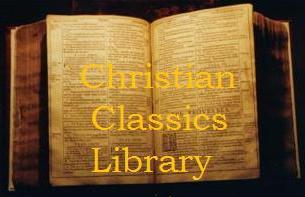Roman Catholics buy iconic Protestant cathedral
 The Crystal Cathedral in Garden Grove, California, has long been an Icon of the quintessentially American form of Christianity: evangelical Protestant "Televangelism." I remember occassionally catching bits of services from the famed church on cable TV throughout my life; they were not all that different than what we were doing in traditional Methodist and Baptist churches, a service of hymns+evangelistic sermon+more hymns, yet on a much grander scale. Founded by Robert Schuller, this church is affiliated with the Reformed Church in America.
The Crystal Cathedral in Garden Grove, California, has long been an Icon of the quintessentially American form of Christianity: evangelical Protestant "Televangelism." I remember occassionally catching bits of services from the famed church on cable TV throughout my life; they were not all that different than what we were doing in traditional Methodist and Baptist churches, a service of hymns+evangelistic sermon+more hymns, yet on a much grander scale. Founded by Robert Schuller, this church is affiliated with the Reformed Church in America.Like many independent mega-churches, the position of senior pastor of the Crystal Cathedral Ministries has been "passed down" through the Schuller family, though the Schullers have been accused by some of poor leadership and financial management in recent years. In 2010 the church's leadership board filed for bankruptcy and, according to a recent NPR story, the church building has been purchased by the Roman Catholic diocese of Orange. Though other offers were on the table, the fact that the Roman Catholic diocese would continue to use the building as a house of worship was a key factor in the decision to sell to them over other potential buyers. The building will be remodeled for use as a Catholic cathedral (this will no doubt include the installation of the cathedra, or bishop's chair, to make the place a proper cathedral).
I can't help but feel that this is a deeply sybolic moment. The Crystal Cathedral has been a bastion and symbol of several trends in American Protestantism during the 20th century. It is affiliated with a "mainline" denomination and has maintained classic mainline Protestant worship styles in a changing culture, resisting the move towards more contemporary musical styles. The church was also one of the pioneers of televangelism with its "Hour of Power" program airing across the continent. Like many evangelical churches (and basically all TV-churches), this one certainly has been centered around the personality of a charismatic leader.
So what might the Roman Catholic buy-out symbolize? Is this a sign of the failure of a whole model of church, or simply the failure of a few leaders to handle money well? Do we see here that, in spite of all their significant difficulties, that the Roman Catholic Church as an institution ultimately has a deeper stability than even the most dynamic of evangelical churches? Is this an example of a church that marries itself to the spirit of the times finding itself a widow when the times change?
No doubt, the ministries of the Crystal Cathedral have inspired many over the decades, and probably helped more than a few to establish and maintain a salvation-claiming faith in Jesus Christ as Lord. My prayer is that God will bless the work of the Crystal Cathedral Ministries, which will continue with or without their iconic building, as well as the work of the Catholic diocese - that in all things God may be glorified. Gloria Deo!
Labels: Evangelicalism, Roman Catholicism









